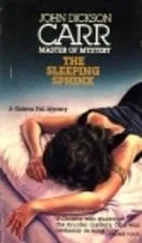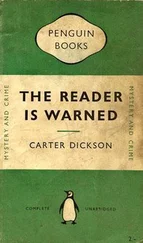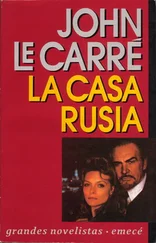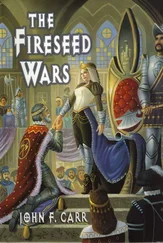They had rented the town house of a former member of the Service, a British banker with a second house in Cintra. Old Palfrey had clinched the deal for them. They wanted no official premises, nothing that could afterwards be held against them. Yet the sense of age and place had its own particular eloquence. A wrought-iron coaching lamp lit the vaulted entrance. The granite flagstones had been hacked to stop the horses slipping. Merridew rang the bell. Brock had closed in tight in case of accidents.
'Hullo. Come on in,' said Ned pleasantly, opening the huge scrolled door.
'Well I'll be off, won't I?' said Merridew. 'Marvellous, terrific.' Still burbling covering fire, he scampered back to his car before anyone could contradict him. And as he did so the second car cruised by like one good friend who has seen another to his doorstep on a dangerous night.
For a long moment, while Brock stood off observing them, Ned and Barley appraised one another as only Englishmen can who are of the same height and class and shape of head. And though Ned in appearance was the very archetype of quiet British self-command and balance, and in most ways therefore the exact reverse of Barley - and though Barley was loose-limbed and angular with a face that even in repose seemed determined to explore beyond the obvious - there was still enough of the other in each of them to permit a recognition. Through a closed door came the murmur of male voices, but Ned made as though he hadn't heard it. He led Barley down the passage to a library and said, 'In here,' while Brock stayed in the hall.
'How drunk are you?' Ned asked, lowering his voice and handing Barley a glass of iced water.
'Not,' said Barley. 'Who's hijacking me? What goes on?'
'My name's Ned. I'm about to move the goalposts. There's no telegram,. no crisis in your affairs beyond the usual. No one's being hijacked. I'm from British Intelligence. So are the people waiting for you next door. You once applied to join us. Now's your chance to help.'
A silence settled between them while Ned waited for Barley to respond. Ned was Barley's age exactly. For twenty-five years, in one guise or another, he had been revealing himself as a British secret agent to people he needed to obtain. But this was the first time that his client had failed to speak, blink, smile, step back or show the smallest sign of surprise.
'I don't know anything,' said Barley.
'Maybe we want you to find something out.'
'Find it out for yourselves.'
'We can't. Not without you. That's why we're here.'
Drifting over to the bookshelves, Barley tilted his head to one side and peered over the top of his round spectacles at the titles while he went on drinking his water.
'First you're commercial, now you're spies,' he said.
'Why don't you have a word with the Ambassador?'
'He's a fool. I was at Cambridge with him.' He took down a bound book and glanced at the frontispiece. 'Crap,' he pronounced with contempt. 'Must buy them by the yard. Who owns this place?'
'The Ambassador will verify me. If you ask him whether he can manage golf on Thursday, he'll tell you not till five o'clock.'
'I don't play golf,' said Barley, taking down another volume. 'I don't play anything actually. I've retired from all games.'
'Except chess,' Ned suggested, holding out the open telephone directory to him. With a shrug Barley dialled the number. Hearing the Ambassador, he gave a raffish if rather puzzled smile. 'Is that Tubby? Barley Blair here. How about a spot of the golf on Thursday for your liver?'
An acid voice said it was engaged till five o'clock.
'Five won't do at all,' Barley retorted. 'We'll be playing in the dark at that rate - bugger's rung off,' he complained, shaking the dead receiver. Then he saw Ned's hand on the telephone cradle.
'It isn't a joke, I'm afraid,' said Ned. 'It's actually very serious.'
Lost once more in his own contemplations, Barley slowly replaced the receiver. 'The line between actually very serious and actually very funny is actually very thin,' he remarked.
'Well, let's cross it, shall we?' said Ned.
The talk behind the door had ceased. Barley turned the handle and walked in. Ned followed. Brock stayed in the hall to guard the door. We had been listening to everything over the relay.
If Barley was curious as to what he would face in there, so were we. It's an odd game, turning a man's life inside out without meeting him. He entered slowly. He took a few paces into the room and slopped, his long arms -dangling wide of his sides while Ned, halfway to the table, made the all-male introductions.
'This is Clive, this is Walter, and over here is Bob. This is Harry. Meet Barley, everyone.'
Barley scarcely nodded as the names were spoken. He seemed to prefer the evidence of his eyes to anything he was being told.
The ornate furniture and the coppice of vulgar indoor plants interested him. So did an orange tree. He touched a fruit, caressed a leaf, then delicately sniffed his thumb and finger as if assuring himself that,they were real. There was a passive anger about him that went ahead of finding out the cause. Anger at being woken, I thought. At being singled out and named - a thing Hannah said I always feared the most.
I also remember thinking he was elegant. Not, God knows, by virtue of his shabby clothes. But in his gestures, in his faded chivalry. In his natural courtesy, even if he resisted it.
'You don't run to surnames, by any chance, do you?' Barley enquired when he had completed his inspection of the room.
'I'm afraid not,' said Clive.
'Because a Mr. Rigby called on my daughter Anthea last week. Said he was a tax inspector. Some bilge about wanting to adjust an unfair assessment. Was he one of you clowns?'
'By the sound of him I should think he probably was,' said Clive, with the arrogance of someone who can't be bothered to lie.
Barley looked at Clive, who had one of those English faces that seemed to have been embalmed while he was still a boy king, at his hard clever eyes with nothing behind them, at the ash beneath his skin. He turned to Walter, so round, wispy and amused, a teased-out Falstaff of the richer common rooms. And from Walter his gaze moved on to Bob, taking in the patrician scale of him, his greater age, his avuncular ease, the browns he wore instead of greys and blues. Bob was lounging with his legs stretched out, one arm flung proprietorially over a chair. Gold-framed half-glasses pecked from his handkerchief pocket. The soles of his cracked mahogany shoes were like flat-irons.
'Barley, I am the odd. man out in this family,' Bob announced comfortably in a rich Bostonian drawl. 'I guess I am also the oldest and I don't want to be sitting here under a false flag. I am fifty-eight years old, God help me, I work for the Central Intelligence Agency, which as you probably know is based in Langley in the state of Virginia. I do have a surname but I will not insult you by offering you one because it surely would not be much like the real thing.' He raised a liver-spotted hand in leisurely salute. 'Proud to meet you, Barley. Let's have fun. Let's do some good.'
Barley turned back to Ned. 'Now that is jolly,' he said, though with no detectable animus. 'So where are we all off to? Nicaragua? Chile? Salvador? Iran? If you want a Third World leader assassinated, I'm your man.'
'Don't rant,' Clive drawled, though ranting was about the last thing Barley had been guilty of. 'We're as bad as Bob's lot and we do the same things. We also have an Official Secrets Act, which they don't, and we expect you to sign it.'.
At which Clive nodded in my direction,causing Barley to take proper if belated notice of my existence. I always.try to sit a little apart on these occasions and I was doing so that night. Some residual fantasy, I suppose, about being an Officer of the Court. Barley looked at me and I was momentarily disconcerted by the animal straightness of his stare. It somehow did not fit our untidy portrait of him. And Barley, after running his eye over me and seeing I know not what, undertook a more detailed examination of the room.
Читать дальше










